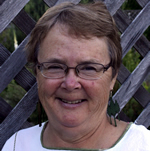I still serve in an invisible army. There’s no six star general to guide us but we have no doubt about our personal marching orders. I have a theory though. I believe that if our army acts together, we might shift the culture of care just a smidgen. It could be a campaign of communication, and our army leading that charge is called Family Caregivers.
One in four Canadians is on active duty. There are many services. Mine was caring for my aging parents, and was limited by their passing on after a decade of growing need. A sudden death incident did not spirit them away, as they might have hoped deep down. My Dad had dementia. My mother’s multiple complex and chronic problems piled up until her body couldn’t take it any more.
I call elders at the edge of their lives “dwindlers.” It is a bold word. In the private lingo of doctors, dwindling is the time of “no place to go but down” when patients need far more attention than the 10 minutes per session they get paid for. Hope has to be found in other ways than cure. Dwindling is a face-it kind of word.
Daughters sign up or get drafted to look after dwindlers far more often than sons. Still, any family member, neighbour or friend can do the job. There are eight million family caregivers in Canada, and a million in British Columbia. That’s a large army. But it’s invisible. Canadians just don’t notice caregivers until they become one, know one, or need one. Can Family Caregivers really shift attitudes toward good care at the edge of life?
I say yes. But its going to be a hard slog. Even caregivers are reluctant to take on that identity for themselves. Yet whether the cared-for person is in the next bedroom or across the country, or whether or not caring happens a few hours a week or is 24/7, most caregivers feel taken for granted. Yet Statistics Canada reports that $24 billion a year is the value of family caregivers free labour. That doesn’t count the $80 million each year that caregivers pay out of pocket to get the job done.
Of all the institutions that seem blind to the worth of caregiving, health systems are the worst offenders. They hand off the patient once their work is done with a “good luck” and a complex plan that the caregiver must make happen with woefully limited support. System navigation is a constant migraine. Most caregivers take on medical tasks without training, and must learn via trial and error. On care plans they are named, if at all, as “contact”. That’s because they get the grunt work of getting appointments and tests and managing medication. When things go well, the health care system takes a bow. When things go badly, after care is blamed. If (or when) the caregiver gets sick, a crisis ensues. Caregivers are awfully hard to replace.
The dwindler is rarely the caregiver’s sole focus. Daughters are also mothers and grandmothers. They are partners and might hold jobs. Life is an emotional tug-of-war taking more hours than the day is long. No wonder that though this cadre of care is savvy and always ready to salute, it is a bedraggled and drained army, desperate for reinforcements that don’t come.
My active duty as a caregiver lasted ten years. When the final funeral was finished, my mind could not stop racing. I couldn’t bury that bed of earworms in my brain; faces of my parents as their most suffering selves, the screw ups, and the dismissive looks of providers everywhere who saw my advocacy as an impediment. I had a trauma, perhaps a low grade case of PTSD. There was no support for my recovery though. This army has no Veterans Affairs.
“Write a book”, my twin Judi suggested. “Write and rip and get it all off your chest.” She felt that since I was a writer, nothing would work better to heal my shattered nerves. There was more, she hinted. If I told my story well, it might encourage more caregivers to tell their stories too. Could a wave of caregivers saying “that reminds me…” jumpstart needed awareness in health care thought leaders? I was snagged on the hook I called “make a difference”. Judi promised to help. “We’ll talk it all through and sort out all the guff from what was true and important.” But she added, “you have to hold the pen.”
More time passed. This was a major commission and I had so much else to do. “No one would want to read such a book?” my brother advised. “Don’t you have more worthwhile things to write about?” So I stayed frozen. Then one middle of the night, waking from another inchoate dream with my mother twisted inside its plot, I tiptoed to my desk, fired up the computer and began to tap.
Four years and ten versions later, my book is reaching readers all over the world on Amazon in print or ebook, and on bookstore shelves. The title? A challenge. It’s called The Dwindling, A Daughter’s Caregiving Journey to the Edge of Life.
Being an author gave me a rank I hadn’t earned while living the experience. Now I was an expert. But all caregivers are experts. We have Ph.D’s in family caregiving. That experience gives us unique knowledge and insight sorely missing from current thinking about health care at the end of life. Insisting that care means cure has led to skyrocketing health costs. Our army knows that’s all wrong. We need to launch an assault on this ignorance. We know what matters most when time becomes short, at the end of life are not high tech solutions. Dignity, comfort and meaning trump drugs and procedures.
When it is my turn to dwindle, I want that excellence too. That’s why I’ve re-enlisted.
 Janet Dunnett
Janet Dunnett
Email Janet
